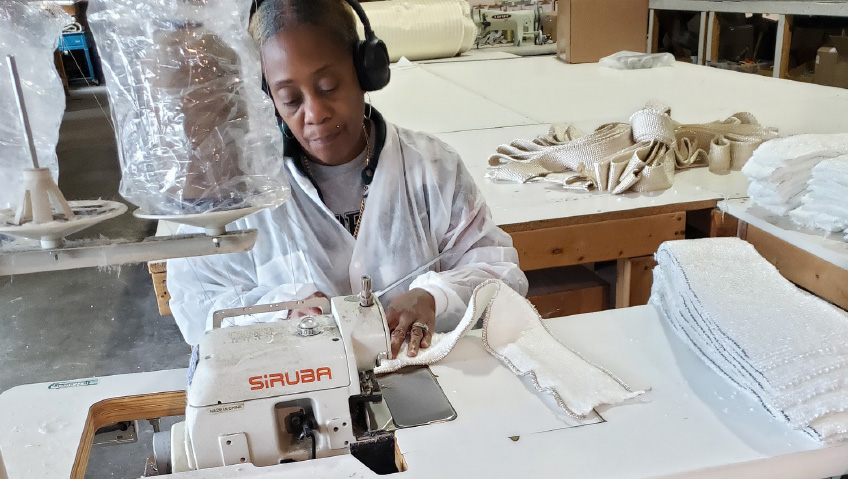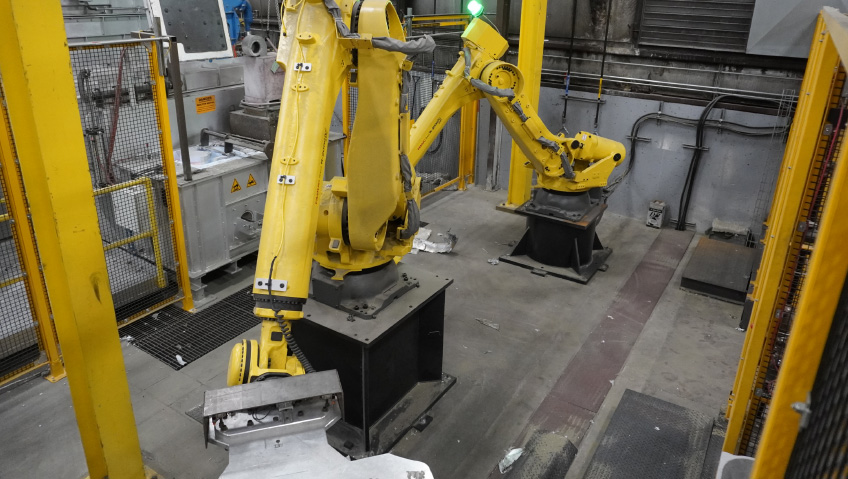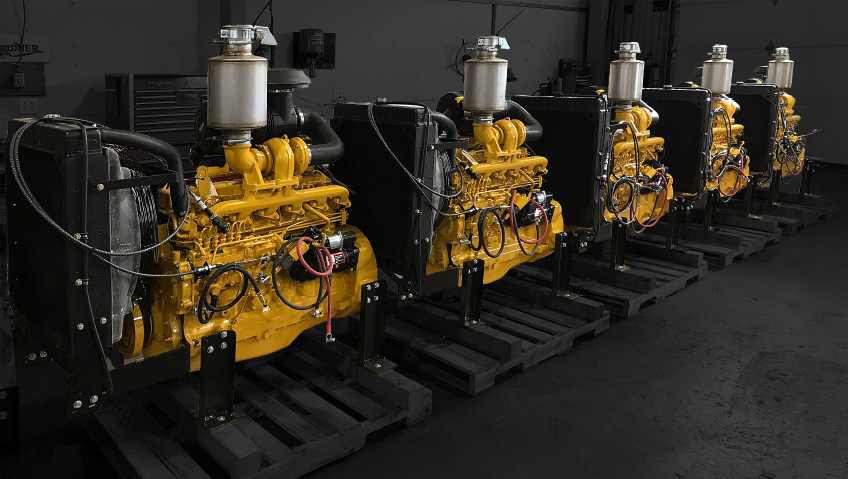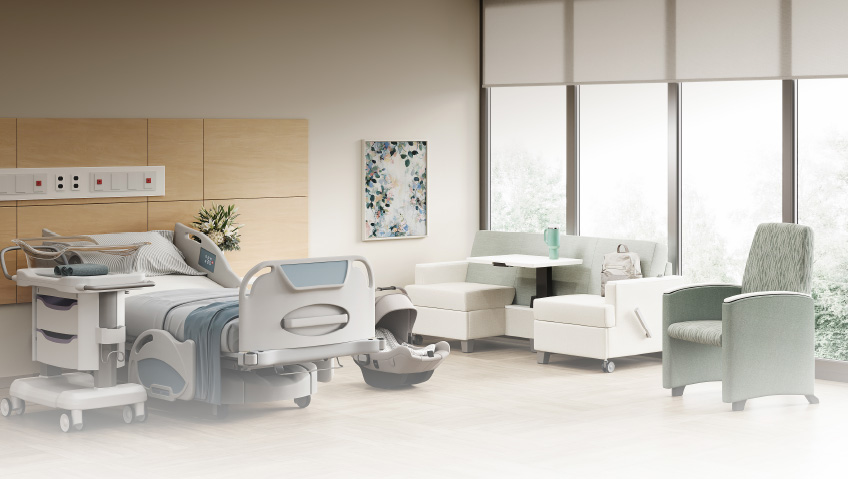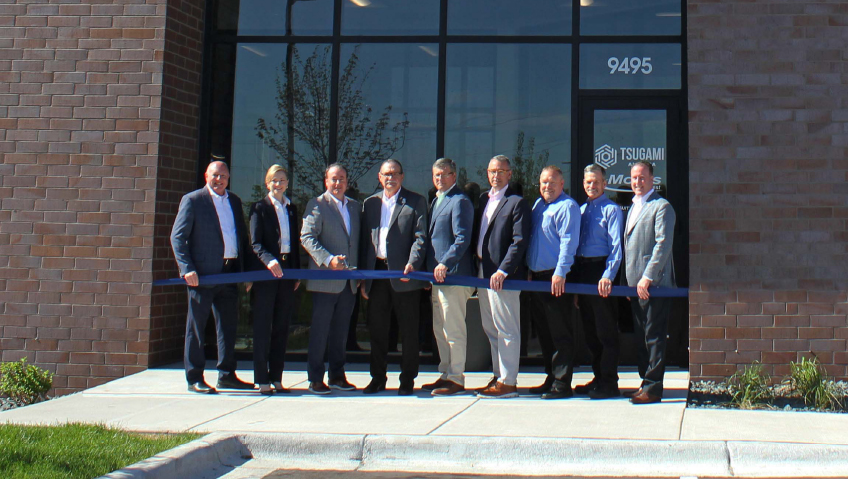Pyro Shield, with locations in Crown Point, Indiana and LaPorte, Texas, is a one-stop shop for temperature-resistant custom fabrication and roll goods for applications in harsh industrial environments.
We were intrigued to learn more about this niche company which provides a wide range of products and applications across various industries, including manufacturing, petrochemical, aerospace, and automotive, where high-temperature resistance and industrial-grade materials are essential. So we spoke with Vicky Smith, Pyro Shield’s Inside Sales Manager.
Back to the beginning
Smith took us back to 1992 and Lake Forest, California, where a small group of men who had backgrounds in heat treatment got together in a backyard garage to come up with ideas for a product line that would assist them in their work. Among those men was Don Murphy, who would serve as President of the company for more than 25 years until his passing in June of 2023.
Back in 1992, curious neighbor Shawn Heer, a plumber and pipefitter by trade, stopped by and saw that their ideas had potential. He asked if they could make a guard for his welding torch—and so they did. One could say the rest is history, except that might imply it was an easy step from Heer’s torch guard to where the company is today, and that would be leaving out years of research and development as the team built on their ideas.
After five years of working out of the garage, the company relocated to Crown Point in the Calumet Region of northwest Indiana in 1997. It was and is the ideal location for their business, since it’s the single largest steel-producing area in the U.S., accounting for 27 percent of all American steel production.
In addition, Indiana is the second largest automotive-production state and is home to other industries such as pharmaceuticals, electrical and transportation equipment, chemical products, rubber, petroleum and coal production, and factory machinery.
Heer, who heads up the company as President, and Murphy, who remained active in it until he passed in June 2023, chose the new location strategically because every one of the industries surrounding them requires the kind of products Pyro Shield fabricates, essential for protecting workers from high temperatures and protecting equipment from deterioration from long exposure to high heat.
12 years ago, “because of the amount of industry in Texas, and because we were getting a lot of requests for custom work coming out of that area, we saw another great opportunity,” Smith says. This led to the opening of a second Pyro Shield location in LaPorte, the port city not only adjacent to Greater Houston but also to the major economic hubs of the Bayport Industrial District, the Battleground Industrial District, and the Barbours Cut Container Terminal.
Niche market products
As industry becomes increasingly complex, so do its requirements, which often can’t be met by standard-sized stock products (although Pyro Shield does produce some of these, which are available through retailers). Consequently, a huge portion of the company’s work relies on customization, a process that begins when a customer describes a unique situation, triggering a response such as a CAD drawing or even some suggested measurements, jotted in a memo.
Next comes material selection. Pyro Shield offers a range of fabrics that are rated for applications where the temperature will be 1,000°F or even up to 1,800°F. But, as Smith points out, fire blankets and heat shields for applications requiring the same level of heat protection will still vary from industry to industry. “A heat shield for the plastics industry would differ from a heat shield that is needed in a steel mill because it could require different sizes, different thicknesses, or different ways of mounting or fitting,” she explains.
Among the fabric choices both uncoated and vermiculite-coated in a variety of weaves; BB Board, with one side aluminized and designed to reflect heat; and different grades of uncoated fiberglass, with heavy duty fabric especially well-suited to the aerospace industry and abrasion-prone areas.
Smith tells us that, “using the appropriate fabric, we fabricate high-temperature blankets and slow-cool blankets; we make sleeves to cover wire bundles, cables, or induction coils; whatever the customer requires, whether furnace modules, an annealing seal for the steel industry, a gasket, or an insulation cover for a particular application. We service a lot of covers and insulation blankets for the plastics and glass industry.”
Completing the toolbox
In addition to supplying products to diverse industries, Pyro Shield has stayed true to its roots in helping the individual worker. Remember that first request for a welding torch guard from neighbor-turned-President, Shawn Heer? Well, that product is still being fabricated, and Heer, who tested and used it maintains, “No toolbox is complete without the Pyro Shield torch guard.”
With a maximum operating temperature of 1800°F and made of coated heavy duty fabric, the torch guard is ideal for welding, brazing, and soldering with propane, MAPP gas, and oxyacetylene. It is designed for commercial, industrial, and residential applications, and can withstand more than 100 occasions of use.
Two related products that Pyro Shield fabricates are kneeling pads and welding chairs, developed for customers wanting to improve the comfort of workers welding in hard-to-reach spots.
But heat protection items are not the only products Pyro Shield produces, despite its name—derived from the Greek word, pyr, meaning fire. The company also fabricates sound absorption—or acoustical—covers that soften the sounds of manufacturing facilities, and freeze protection products, which could be a wrap, a blanket, or a curtain.
“We have a lot of requests from farms in our area struggling to keep things from freezing because Indiana has intense winters,” Smith says, noting that Pyro Shield has also accommodated residential customers looking for smaller applications to be wrapped, such as water pipes. “We’ll assist them as well as our large industrial customers, whether it’s 300 applications or 10, because no job is too large or too small.”
Putting it all together
Many of Pyro Shield’s fabricators have 20 or more years of experience and include pattern makers, one with a degree in fashion design who previously created patterns for wedding dresses and military uniforms. “But creating a pattern for an end product is exactly the same process,” Smith says, “whether for a dress, a boat or car seat cover, or an industrial application.”
She goes on to note that the sewers the company employs to work on industrial sewing machines “are extremely talented and we rely on them to fabricate whatever leaves the factory.”
It’s a small, tight-knit group who enjoy their work because each day is something a little different, “not like making the same jeans or t-shirts. There is variety in the work,” she says, “and we do things in-house to maintain a family atmosphere—cookouts, birthday lunches, breakfast days. It’s about keeping our group tight and close—important because we rely on each other.”
There is also a sense of pride in knowing that what is fabricated in both plants is allowing industry to move forward safely and is of long-term benefit to the economy.
Spreading the word
Pyro Shield’s customers range from longstanding repeat customers to whom it provides maintenance services monthly or quarterly, to industries that have used products that weren’t custom-designed and discovered that stock products weren’t working for them and startups that need everything Pyro Shield can customize as their new facility is being constructed.
“It truly is a niche market for the type of customer who needs a very specific requirement that will meet their application needs, and not everyone can or will produce what we do,” Smith says.
Much of the company’s business is from repeat customers, “but I love to hear the stories of how new customers heard about us. Often it is, ‘so-and-so who works at such-and-such company gave me your name and number because they have worked with you for the last five or ten years,’” Smith shares. “Other times it’s, ‘the sales rep from XYZ company stopped by and I told him I was trying to figure out a blanket for this application, and the rep said to contact Pyro because that’s the kind of work they do.’ So word of mouth and referrals are what we rely on,” she says. “It’s so nice to know that people like the quality, custom work we create and do, and they are sharing that information.”

